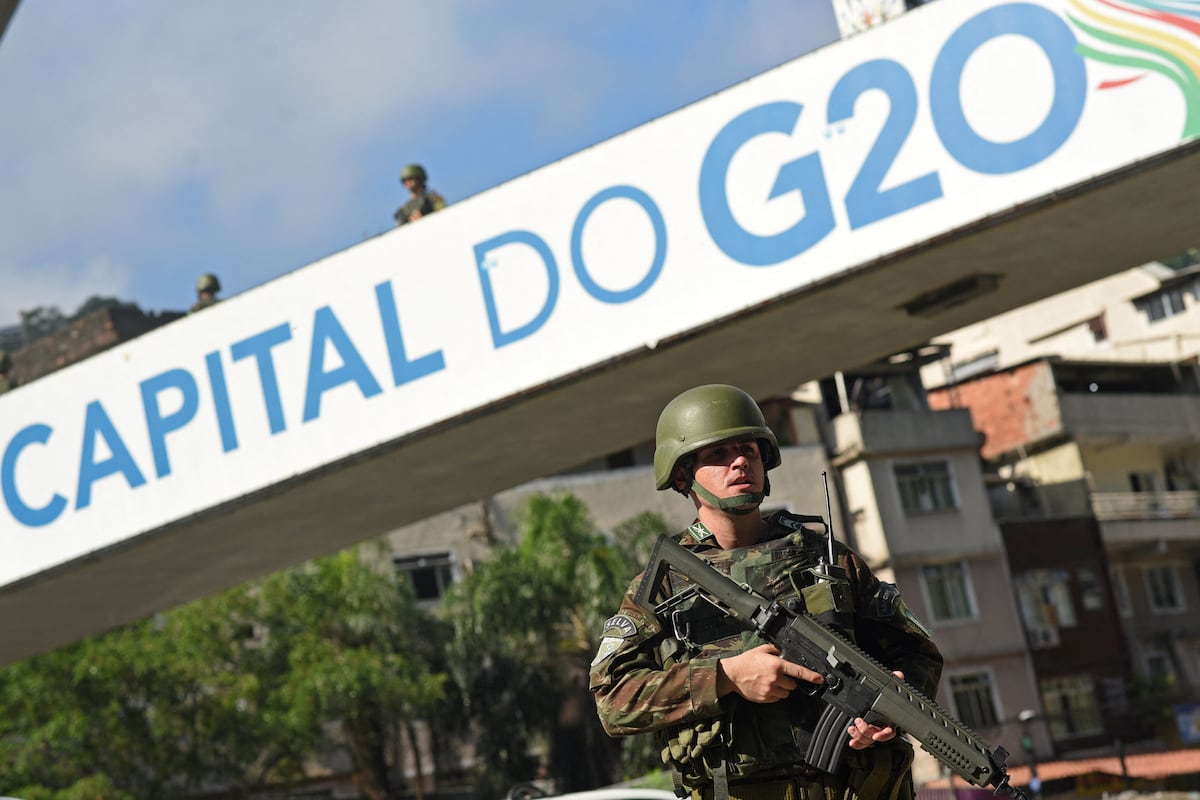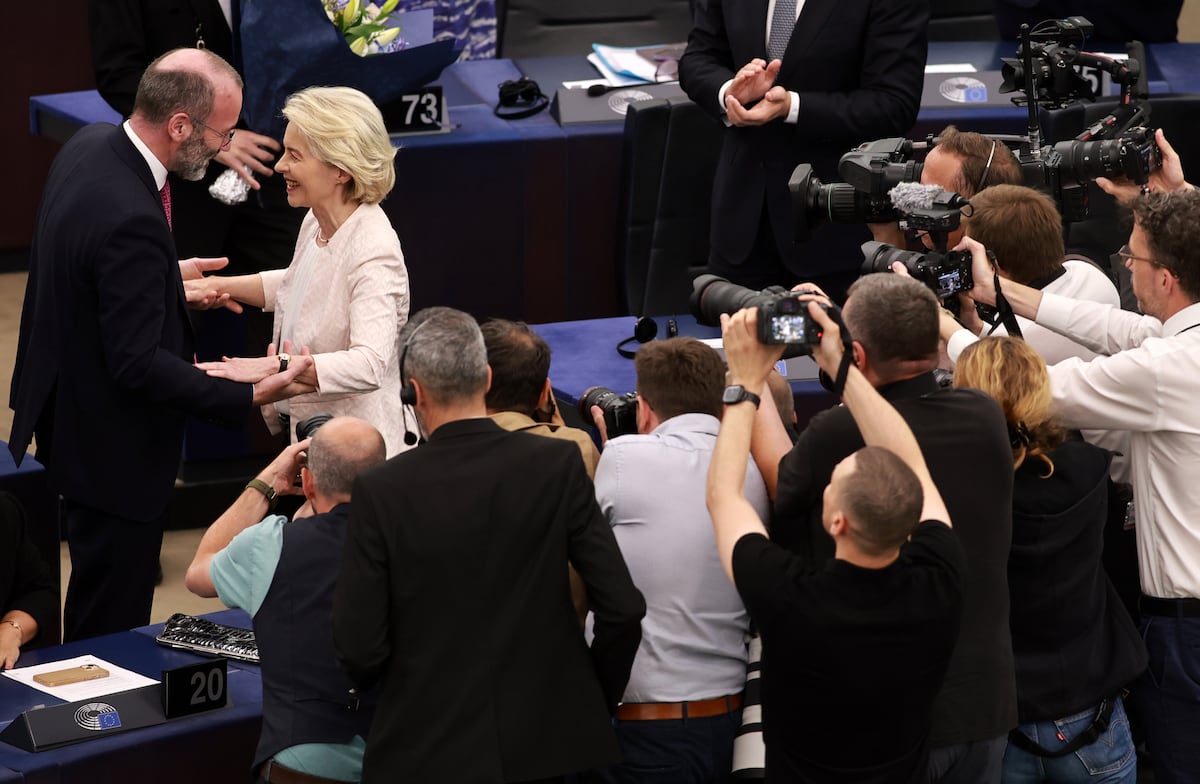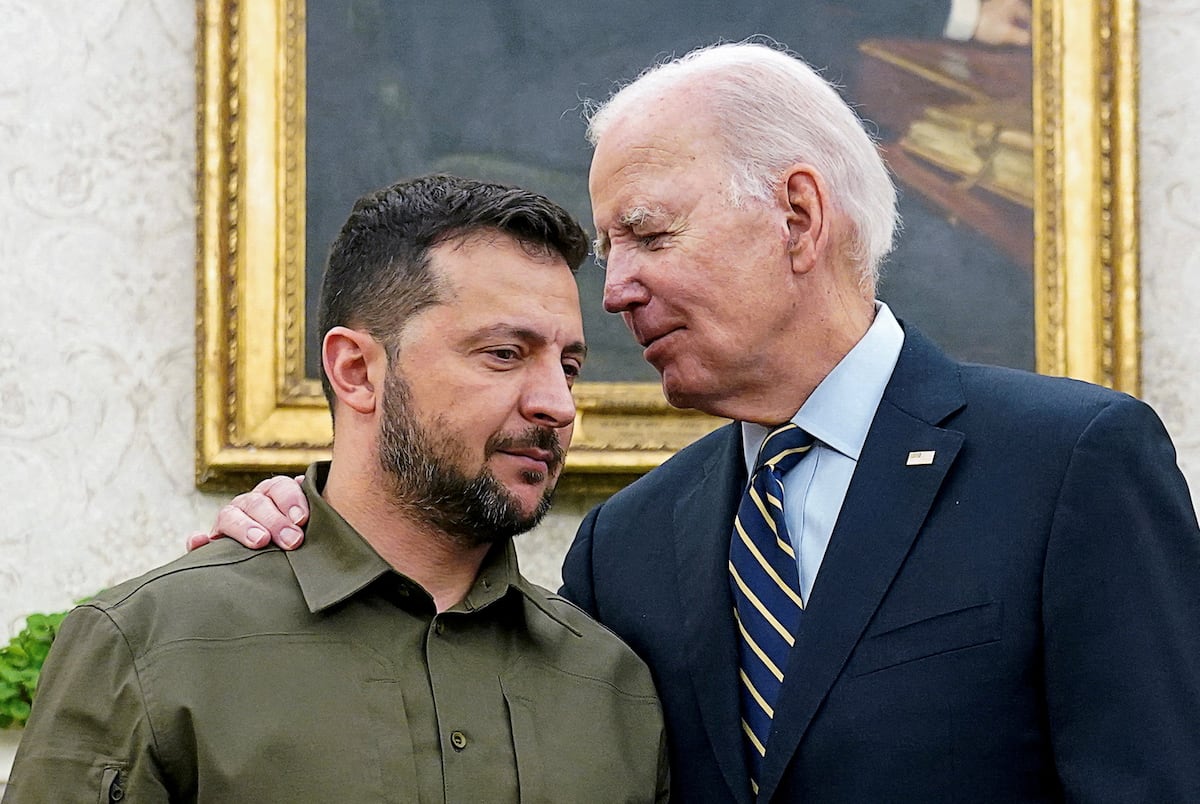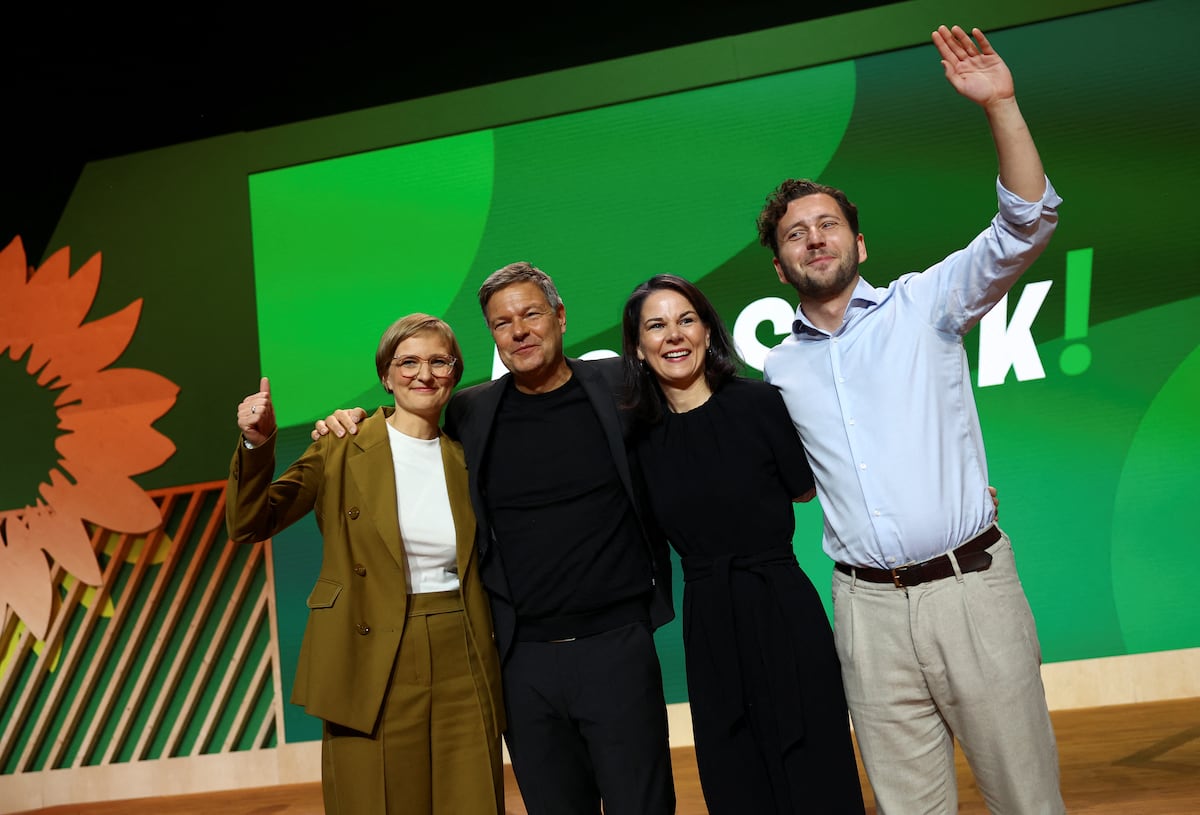The resounding victory of the always unpredictable Donald Trump, 78, in the elections on November 5 in the United States has given a strong shake to the horizon of the global board. The return of the Republican magnate to the White House starting next January 20, with the dominance of both Chambers, multiplies the uncertainties in the foundations of international relations and fuels doubts about the role that Washington will play in the geopolitical balances during the years. next four years. With these premises, the already elected president will be the protagonist – even absent – of the G-20 summit that is being held this Monday and Tuesday in Rio de Janeiro (Brazil). The American Joe Biden, 81 years old and already saying goodbye, and the Chinese Xi Jinping, 71, who met in Peru on Saturday, are scheduled to participate. The Asian asked for “certainty” in the relationship between both superpowers.
The meeting of the world’s main economies is the first major test bed of the climate generated by the imminent and radical change of course of the United States. With the wars in Ukraine, Gaza and Lebanon adding attacks and deaths daily, while Western trade tensions with China escalate and NATO anxiously awaits the relief, concern is spreading in both Europe and Latin America. The fight against climate change will suffer a huge impact with the withdrawal of negotiations and debates in the second largest emitting country of polluting gases. President Biden visited the Brazilian Amazon this Sunday, where he announced 50 million dollars (about 47 million euros) to conserve the largest tropical forest in the world.
As happened last year at the G-20 in New Delhi, Vladimir Putin will be absent. The Russian has an international arrest warrant for war crimes in Ukraine.
Brazil returns to the scene
Hosting the G-20 leaders in Rio is a milestone in Brazil’s return to the center of the international stage. A priority issue for the host, Luiz Inácio Lula da Silva, 79 years old, after the diplomatic isolation of the Bolsonaro years. This Sunday, Lula emphasized these two priorities when closing a conclave of mayors prior to the summit. He highlighted that the fight against climate change can promote “a broader urban agenda of inclusion and social justice” and that “the ecological transition is a valuable opportunity to generate employment and income for youth.”
The Brazilian president also took advantage of his intervention to condemn the war in Gaza and make a plea for peace. “Talking about governance reform also implies repudiating the destruction caused by wars,” he stressed. “The Gaza Strip, one of humanity’s oldest urban settlements, has seen two-thirds of its territory destroyed by indiscriminate bombing. There will be no peace in the cities if there is no peace in the world.” Added to this message were the words of the Secretary General of the United Nations, António Guterres, who called for a ceasefire in Gaza and Lebanon, respect for international law in Ukraine and an end to violence in Sudan and redoubled his commitment to multilateralism and against isolationist tendencies such as that of the elected president of the United States.
Security deployment
This Sunday, the military, rifle in hand deployed because of the summit, contrasts with the Cariocas who come and go in swimsuits around Copacabana beach. The most central area of Rio is empty, with many businesses closed and few neighbors, because the City Council has decreed a six-day holiday.
Lula and Brazilian diplomacy would like this G-20 to revolve around the issues that they consider truly capital: ending hunger and poverty, advancing the environmental transition effectively and reforming the UN. Issues, in their eyes, unfairly overshadowed by conflicts that some countries fuel instead of dedicating themselves to negotiating to resolve them.
The final declaration of the summit this Sunday was still stuck in the paragraph referring to the wars in Ukraine and the Middle East. Weeks of negotiation have not yet produced a formulation that satisfies everyone. The matter will be addressed by leaders this Monday.
Major challenges
The new stage that opens this second term of Trump involves major challenges on both sides of the Atlantic and is still surrounded by great unknowns, but the signals sent by the Republican after his victory give some clues about the scope of the coming turn. On the one hand, his campaign promises: mass deportation of immigrants, 60% tariffs on imports from China, strong support for Israel, exit from the Paris climate agreement and maximum pressure on Iran. On the other hand, the announced appointments. The composition of his cabinet anticipates, for example, some probable positions of his Administration on foreign policy.
The future Secretary of State, Marco Rubio, 53, has a very tough profile with Beijing, markedly pro-Israeli, and opposed to military aid to Ukraine. His appointment has raised expectations in Latin America, especially in the most radical sectors of the Venezuelan, Cuban and Nicaraguan opposition, which demand greater force against the Governments of Miguel Díaz-Canel, Nicolás Maduro and Daniel Ortega.
Rubio, the son of Cuban immigrants who speaks fluent Spanish, is the first Latino in office. However, one of its priorities must be the application of Trump’s strict immigration agenda led by Kristi Noem, appointed Secretary of Homeland Security, and managing its impact on the affected countries. And, more generally, leading an isolationist policy.
It is foreseeable that the repercussions of Trump’s return to power will be felt especially intensely in countries such as Ukraine or Mexico. The former has been threatened with draining or even cutting off the enormous flow of American aid to confront the Russian invasion. The second has been threatened with the expulsion of millions of immigrants, harsh tariffs if the Mexican Government does not comply with Trump’s immigration program, and bombing the factories where drug traffickers produce fentanyl. The next American president has also proclaimed his intention not to get involved in major wars, he wants the military dedicated to the great deportation he promised, and the man chosen to lead the largest army in the world with the largest budget is a war veteran Fox anchor. .
What will be Trump’s attitude towards China, where, for example, Tesla – owned by Elon Musk, who has become inseparable from the president-elect – has a big business, is one of the great uncertainties. Unlike some members of his cabinet, the president-elect is not an ideologue. His thing is to negotiate and close agreements. And that is precisely the terrain where some countries pin their hopes on navigating Trump’s next term.
The summit will also serve for Lula to have his first meeting with his Argentine counterpart, the ultra Javier Milei, 54, the first president to meet with Trump after the electoral victory, and for the Mexican president, Claudia Sheinbaum, 62, launch international agenda. Brazil is concerned about the growing problems that Argentine envoys are raising in the final stretch of the G-20 negotiations. Lula trusts that the Frenchman Emmanuel Macron, who this Sunday visits Milei in Buenos Aires, will iron out the rough spots.
Unlike the atmosphere after Trump’s unexpected victory in 2016, foreign ministries around the world now know better what to expect. But the tycoon is known for being impulsive, someone who allows himself to be influenced and given to notable swings. And on this occasion, he is accompanied by the richest man in the world, Elon Musk, with interests in countless sectors of the economy. Lula’s wife, Janja da Silva, was talking about disinformation at an event parallel to the G-20 when she insulted the billionaire: “Fuck youElon Musk,” he said in English. To which he responded: “They are going to lose the next election.”
Lula, a leader forged in union negotiations, defends a multipolar world. He remains a geopolitical tightrope walker, with allies left and right, although his figure no longer shines as it once did. But the growing hostility between the United States and China, and the complexity of the world itself, has considerably narrowed the field for this waist game. Maintaining the neutrality that Brazil, a medium power, prides itself on, is increasingly difficult. His benevolence toward Putin in Ukraine first baffled and then outraged his Western allies. Before the G-20 partners, Brazil emphasizes its role as a member of the Global South; in the BRICS, that of Western democracy.
Even if Lula manages to resurrect at this Rio summit the global debate on the fight against hunger, which suffocates 722 million people in the world, especially in Africa, Asia and Latin America, Trump’s return nevertheless represents an obstacle enormous. Although the club of large economies reaches an agreement to form an alliance against poverty, the little or no interest shown by the Republicans in international cooperation – even in those investment formulas aimed at alleviating migratory flows – complicates the viability of the Brazilian proposals.










